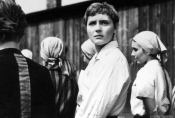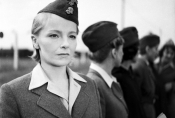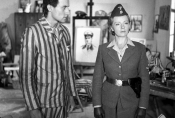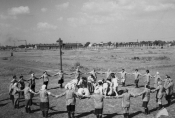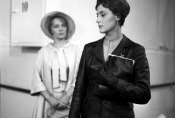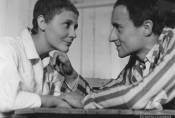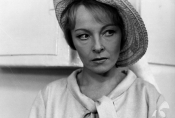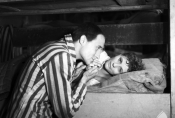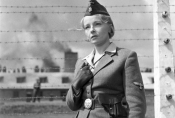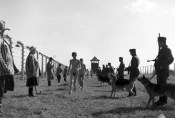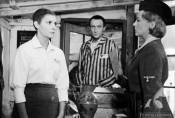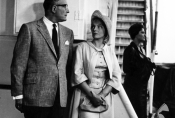THE PASSENGER [1963]
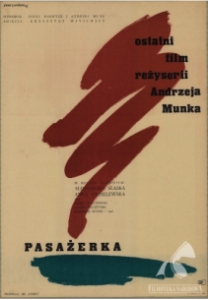
year:
- 1963
release date:
- 20 IX 1963
runtime:
- 58 min
directed by:
- Andrzej Munk, Witold Lesiewicz
written by:
- Zofia Posmysz, Andrzej Munk
director of photography:
- Krzysztof Winiewicz
cast:
- Aleksandra Śląska [Liza], Anna Ciepielewska [Marta], Janusz Bylczyński [a kapo], Krzesisława Dubielówna, Anna Gołębiowska, Barbara Horawianka [nurse prisoner], Anna Jaraczówna [a kapo], Maria Kościałkowska [warden Inga Weniger], Andrzej Krasicki [an international committee delegate], Jan Kreczmar [Walter, Liza’s husband], Irena Malkiewicz [Oberaufseherin Madel], Marek Walczewski [Tadeusz, Marta’s fiancé]
edited by:
- Zofia Dwornik
music by:
- Tadeusz Baird
production design:
- Tadeusz Wybult
produced by:
- Zespół Filmowy „Kamera”
executive producer:
- Wilhelm Hollender
awards:
-
• Warsaw Mermaid 1963
• IFF Cannes (France) 1964: FIPRESCI Award, Special Jury Honorable Mention
• International Peace Film Festival Los Alamos (USA) 1964: best performance award for Anna Ciepielewska
• IFF Venice (Italy) 1964: Italian Journalist Association Award
• State Award of the 2nd degree 1964 for Aleksandra Śląska
• Finland Critics Association Award 1965
About the film
A psychological drama played out in two temporal dimensions: the present and extended flashback sequences in the Auschwitz-Birkenau Nazi concentration camp.
Among the many tourists onboard a transatlantic passenger ship, are Walter and Liza, a married couple. In one of the ports a woman comes on board; Liza thinks she recognises her as the Polish camp prisoner, Marta, which brings a flood of memories. Aufseherin Liza, of the female SS formation, tried to use SS teaching methods on Marta. The two women − the executioner and the victim − played a complicated psychological game. The supervisor, however, failed to break the woman, who probably died. Liza, looking for excuses now, reveals the truth about herself to her husband, but it is a false truth.
The retrospective part was made entirely by Andrzej Munk. It is a vision that differs from the traditional model of martyrdom; there are no shocking images of cruelty and physical suffering of prisoners. The crime does not necessarily result from the cruelty and sadism of the torturers; it is an immanent evil − associated with the Nazi totalitarian system − the director seems to be saying. And though the world behind the barbed wire of Auschwitz is fully authentic, it is the moral issues that are emphasised, such as the psychological limits of human endurance, and the matter of responsibility and conscience.
Donata Zielińska, Leksykon polskich filmów fabularnych, Warszawa 1996
Articles
-
The Structures of Memory
Paulina Kwiatkowska
„Kwartalnik Filmowy” – Special Issue 2013: “Polish Film Scholars on Polish Cinema”
